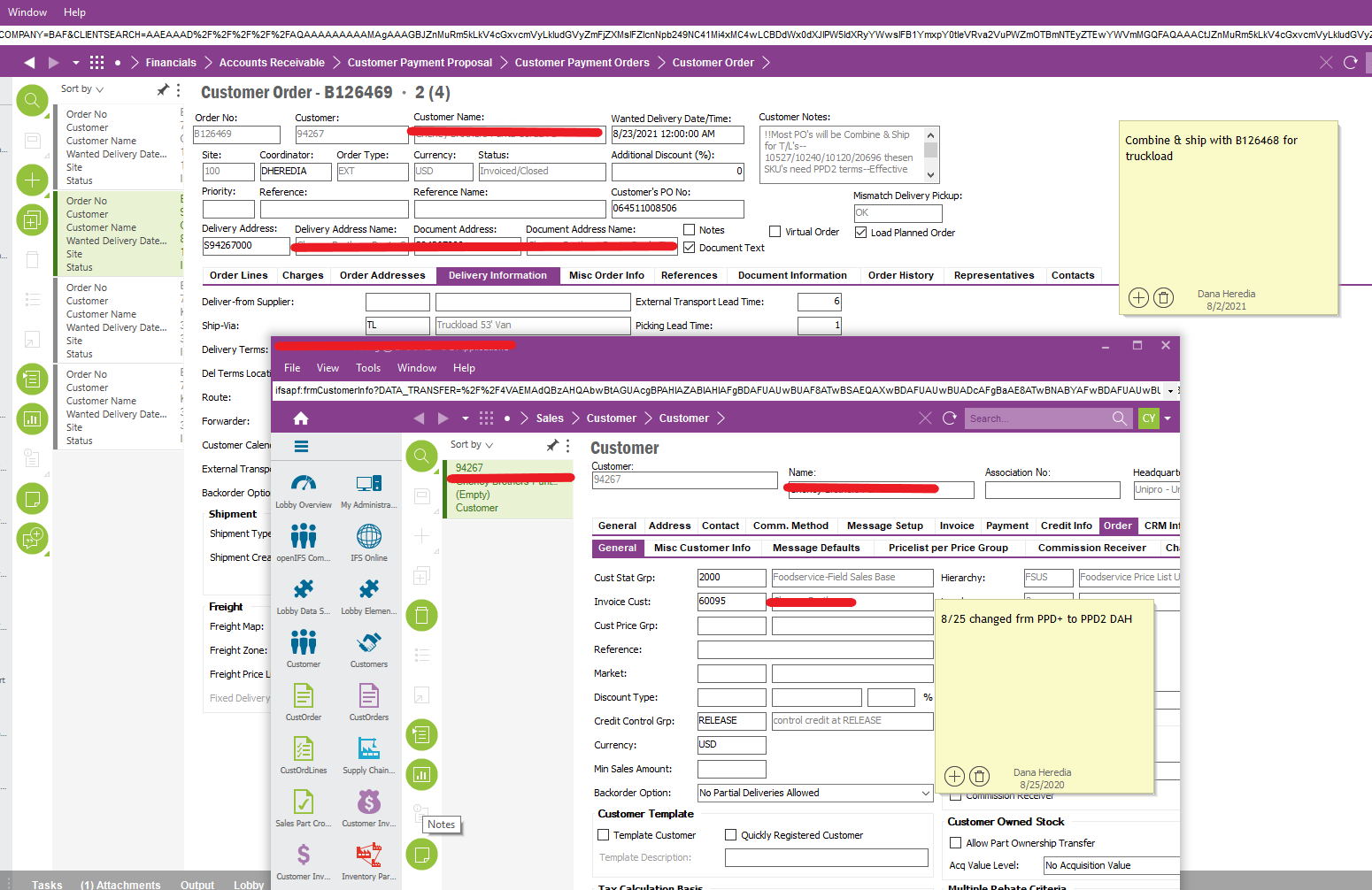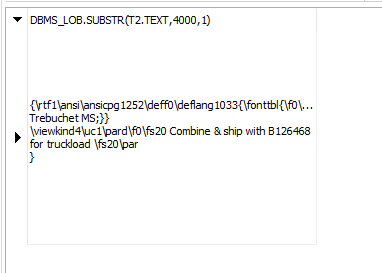How can we retrieve content of the yellow sticky notes (i.e. tool strip, notes icon) via SQL query for any entity that could have yellow sticky notes such as Customer, Customer Order, Shipment, Invoice, Supplier, etc.? Searched PL/SQL for API's and the database for tables/views but could not find any viable candidates.
We’d like to be able to retrieve the sticky note text for reporting and analysis purposes.









